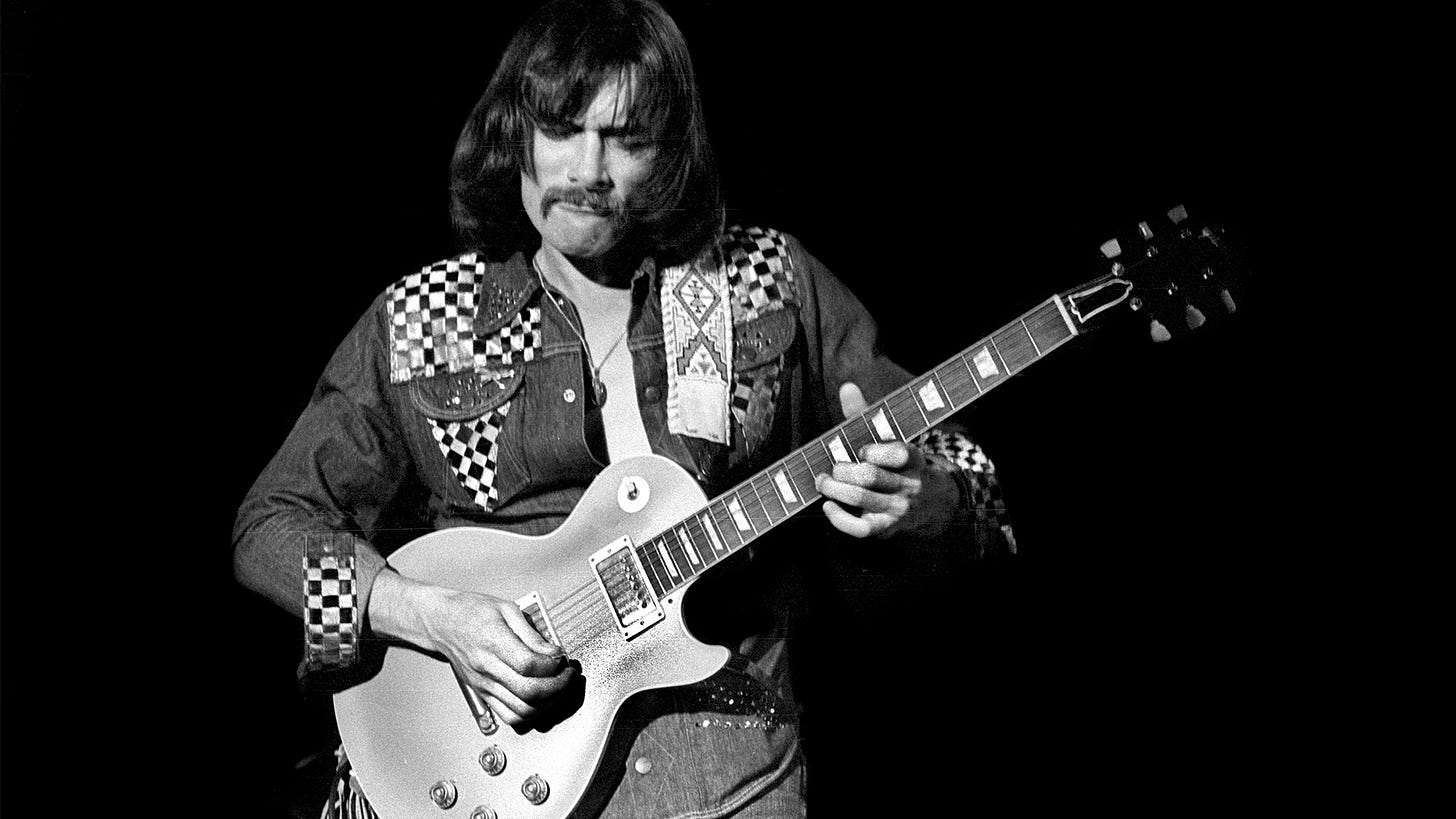Richard Betts
December 12, 1943 - April 18, 2024
With the recording of Brothers and Sisters (Capricorn, 1972), guitarist Dickey Betts began reconfiguring the Allman Brothers Band in his image — with one song: “Ramblin’ Man.” The seeds of this shift could be heard as early as the sublime “Blue Sky” from Eat A Peach (Capricorn, 1972). On October 29, 1971, band founder and leader, Duane Allman, died at 24 in a motorcycle crash in the band’s home in Macon, GA. This created a traumatic vacuum in the band that members took head-on as they prepared to record their follow-up to Eat A Peach.
The recording of Brothers and Sisters began in October 1972. Barely a month later, founding bassist Barry Oakley was killed in a motorcycle further decimating the original band. In a series of fortunate events, the band was rounded out with pianist Chuck Leavell, who had been working with Gregg Allman on his solo recording Laid Back (Capricorn, 1973), and bassist Lamar Williams, a friend of drummer Jaimoe. Betts quickly evolved into a de facto music director during the recording process, contributing four compositions to the project. The result was a greater country music and instrumental contribution to the band’s sound.
Over the next 20 years, the Allman Brothers Band would wax and wane, breaking up and reuniting until the mid-1990s when the band inched toward the stability that would be the permanent line-up until the band’s final dissolution in 2014. However, this stability was not achieved before Betts himself was unceremoniously replaced by Gov’t Mule’s Warren Haynes. Betts went on to lead several bands, including Great Southern, recording several solo albums.
Who Dickey Betts was to the Allman Brothers Band was their most talented and far-seeing member and composer, responsible for rock staples including, “Revival,” “In Memory Of Elisabeth Reed,” “Les Brers in A Minor,” “Blue Sky,” “Ramblin’ Man,” “Jessica,” “High Falls,” “Seven Turns,” and “No One To Run With.” From Brothers and Sisters on, Betts’ pristine, rounded guitar tone established on “Ramblin’ Man” would typify his playing for his duration (check out Betts’ solo on Marshall Tucker Band’s “Searchin’ For A Rainbow”).
As a guitarist, he was the country foil to the rhythm and blues-centered Duane Allman. Together, they recorded the most perfect electric blues on record, “One Way Out” first released on Eat A Peach. If that is all Dickey Betts did, his place in music history would be assured. It is a good thing that it was not.



